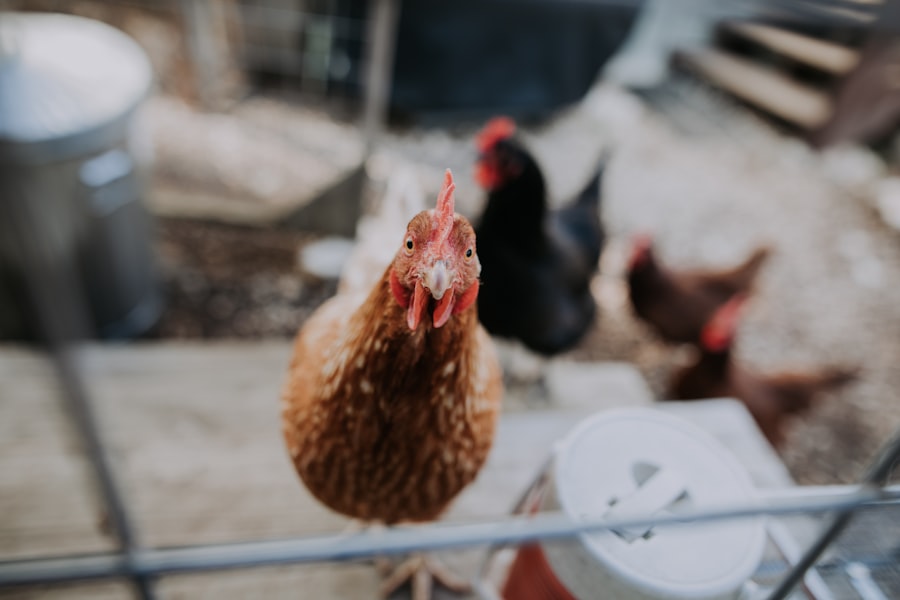Miniature chicken breeds have gained popularity among backyard poultry enthusiasts due to their compact size, attractive appearance, and suitability for smaller living spaces. These diminutive fowl are not only visually appealing but also serve as efficient egg producers and companionable pets. Typically measuring one-quarter to one-third the size of standard chicken breeds, miniature chickens are well-suited for urban or suburban environments with limited space.
Despite their small stature, these breeds are generally robust, productive, and exhibit distinct personalities, making them valuable additions to diverse flocks. Miniature chicken breeds display a wide range of colors, feather patterns, and egg colors, contributing to the visual diversity of a flock. These breeds offer unique and rewarding experiences for both experienced chicken keepers and novice enthusiasts.
This article will examine the characteristics and traits of miniature chicken breeds, highlight popular varieties, provide care and maintenance guidelines, and discuss the advantages and challenges associated with raising these small-scale poultry.
Table of Contents
- 1 Characteristics and Traits of Miniature Chicken Breeds
- 1.1 Miniature chicken breeds are a popular choice for many poultry enthusiasts due to their compact size, making them ideal for those with limited space. Despite their small stature, these chickens are often prolific egg layers, producing eggs that are proportionate to their size.
- 1.2 Efficiency and Appearance
- 1.3 Unique Characteristics and Appeal
- 2 Popular Miniature Chicken Breeds
- 3 Care and Maintenance of Miniature Chicken Breeds
- 4 Benefits of Raising Miniature Chicken Breeds
- 5 Challenges of Raising Miniature Chicken Breeds
- 6 Conclusion and Considerations for Choosing Miniature Chicken Breeds
- 7 FAQs
Key Takeaways
- Miniature chicken breeds are smaller in size compared to standard chicken breeds and are popular for their compact nature and unique characteristics.
- Miniature chicken breeds are known for their friendly and docile nature, making them great pets for families and individuals with limited space.
- Some popular miniature chicken breeds include the Serama, Dutch Bantam, and Silkie, each with their own distinct traits and characteristics.
- Care and maintenance of miniature chicken breeds require attention to their specific needs, including proper housing, nutrition, and protection from predators.
- Raising miniature chicken breeds can provide benefits such as a sustainable source of eggs, pest control, and companionship, but it also comes with challenges such as susceptibility to cold weather and potential health issues.
Characteristics and Traits of Miniature Chicken Breeds
Miniature chicken breeds are a popular choice for many poultry enthusiasts due to their compact size, making them ideal for those with limited space. Despite their small stature, these chickens are often prolific egg layers, producing eggs that are proportionate to their size.
Temperament and Suitability
These chickens are also known for their friendly and docile nature, making them great pets for families with children or individuals looking for feathered companionship.
Efficiency and Appearance
Additionally, miniature chicken breeds are often more efficient foragers than their larger counterparts, making them well-suited for free-range environments. In terms of appearance, miniature chicken breeds come in a wide range of colors and feather patterns, adding visual interest to any flock. From the striking plumage of the Serama to the fluffy appearance of the Silkie, miniature chicken breeds offer a diverse array of aesthetic appeal.
Unique Characteristics and Appeal
These chickens also tend to have unique physical characteristics, such as feathered feet or crests, which further contribute to their charm and appeal. Overall, miniature chicken breeds possess a combination of practicality, charm, and productivity that make them an attractive option for poultry enthusiasts of all levels.
Popular Miniature Chicken Breeds

There are several popular miniature chicken breeds that have captured the hearts of poultry enthusiasts around the world. One such breed is the Serama, which is known for its tiny size, upright posture, and confident demeanor. Seramas come in a variety of colors and feather patterns, making them a visually striking addition to any flock.
Another popular miniature breed is the Silkie, which is beloved for its fluffy plumage, gentle nature, and broody tendencies. Silkies are also known for their unique physical characteristics, such as black skin and blue earlobes, adding to their allure. In addition to the Serama and Silkie, other popular miniature chicken breeds include the Dutch Bantam, Belgian d’Uccle, and Pekin.
Each of these breeds offers its own unique set of characteristics and traits, from colorful plumage to friendly dispositions. Whether you’re drawn to the regal appearance of the Dutch Bantam or the quirky charm of the Belgian d’Uccle, there is a miniature chicken breed to suit every poultry enthusiast’s preferences. These popular breeds have earned their place in the hearts of chicken keepers worldwide and continue to bring joy and delight to those who raise them.
Care and Maintenance of Miniature Chicken Breeds
When it comes to caring for miniature chicken breeds, there are several important considerations to keep in mind. While these chickens may be small in size, they still require the same basic necessities as standard-sized breeds, including shelter, food, water, and protection from predators. It’s important to provide a secure coop or housing structure that offers protection from the elements and potential threats from predators.
Additionally, miniature chicken breeds benefit from access to a spacious outdoor area where they can forage and exercise. In terms of nutrition, miniature chicken breeds require a balanced diet that includes high-quality poultry feed, fresh water, and occasional treats such as fruits and vegetables. It’s important to monitor their food intake and ensure they are receiving adequate nutrition to support their overall health and egg production.
Regular health checks and parasite prevention are also essential aspects of caring for miniature chicken breeds. By staying proactive with their care and maintenance, you can help ensure that your miniature chickens lead happy and healthy lives.
Benefits of Raising Miniature Chicken Breeds
Raising miniature chicken breeds offers a wide range of benefits for poultry enthusiasts. One of the primary benefits is their small size, which makes them well-suited for smaller living spaces such as urban or suburban backyards. Their petite stature also makes them easier to handle and manage compared to larger breeds, making them an ideal option for families with children or individuals with limited physical strength.
Additionally, miniature chicken breeds are often excellent egg layers, providing a steady supply of small but nutritious eggs for their owners. Another benefit of raising miniature chicken breeds is their friendly and docile nature, making them great pets for individuals seeking feathered companionship. Many miniature breeds are known for their sociable dispositions and enjoy interacting with their human caretakers.
This can provide a source of joy and entertainment for poultry enthusiasts while fostering a deeper connection with their flock. Overall, the benefits of raising miniature chicken breeds extend beyond their practicality to encompass their charm, productivity, and potential for companionship.
Challenges of Raising Miniature Chicken Breeds

Vulnerability to Predation
One of the primary concerns is their small size, which makes them more susceptible to predation from larger animals like dogs or raccoons. To mitigate this risk, it’s crucial to take extra precautions to secure their coop and outdoor area, ensuring their safety from potential threats.
Specialized Care and Handling
Their petite stature also requires special considerations when it comes to handling and care. Miniature breeds may be more delicate than larger breeds, necessitating gentle handling and attention to their specific needs.
Broodiness and Health Monitoring
Another challenge of raising miniature chicken breeds is their potential for broodiness. Some breeds, like Silkies, are known for their strong brooding instincts, which can impact their egg-laying productivity. It’s essential to be prepared for this behavior and have strategies in place to manage broody hens if necessary. Additionally, their small size may require extra attention when it comes to monitoring their health and well-being. By being aware of these potential challenges and taking proactive measures to address them, poultry enthusiasts can successfully raise and care for miniature chicken breeds.
Conclusion and Considerations for Choosing Miniature Chicken Breeds
In conclusion, miniature chicken breeds offer a unique and rewarding experience for poultry enthusiasts of all levels. Their small size, charming appearance, productivity, and potential for companionship make them an attractive option for those looking to add a delightful addition to their flock. When considering miniature chicken breeds, it’s important to research different breeds and consider factors such as space requirements, egg-laying capabilities, temperament, and special care needs.
Whether you’re drawn to the confident demeanor of the Serama or the fluffy charm of the Silkie, there is a miniature chicken breed to suit every poultry enthusiast’s preferences. By understanding the characteristics, traits, care requirements, benefits, and challenges associated with raising miniature chicken breeds, individuals can make informed decisions about adding these delightful little birds to their flock. With proper care and attention, miniature chicken breeds can bring joy, productivity, and companionship to those who choose to raise them.
If you’re interested in raising miniature chicken breeds, you may also want to consider building a farmhouse chicken coop to house them. This article provides tips and ideas for creating a cozy and functional coop for your small chickens. It’s important to provide them with a safe and comfortable living space, and this article offers valuable insights on how to do just that.
FAQs
What are miniature chicken breeds?
Miniature chicken breeds are small-sized chickens that are bred specifically for their small stature. They are often kept as pets or for ornamental purposes.
What are some popular miniature chicken breeds?
Some popular miniature chicken breeds include the Serama, Dutch Bantam, Pekin, and Silkie. These breeds are known for their small size and unique appearances.
What are the benefits of keeping miniature chicken breeds?
Keeping miniature chicken breeds can be beneficial for those with limited space, as they require less room than standard-sized chickens. They are also popular for their friendly and docile nature, making them great pets for families.
What are the care requirements for miniature chicken breeds?
Miniature chicken breeds require the same basic care as standard-sized chickens, including a suitable coop, access to fresh water and feed, and regular health checks. However, their smaller size may require special attention to protect them from predators.
Can miniature chicken breeds be kept with other chickens?
Miniature chicken breeds can be kept with other chickens, but it’s important to consider their small size and ensure they are not bullied by larger birds. Providing a separate space or integrating them carefully into a flock can help prevent any issues.

Meet Walter, the feathered-friend fanatic of Florida! Nestled in the sunshine state, Walter struts through life with his feathered companions, clucking his way to happiness. With a coop that’s fancier than a five-star hotel, he’s the Don Juan of the chicken world. When he’s not teaching his hens to do the cha-cha, you’ll find him in a heated debate with his prized rooster, Sir Clucks-a-Lot. Walter’s poultry passion is no yolk; he’s the sunny-side-up guy you never knew you needed in your flock of friends!


Meet Walter, the feathered-friend fanatic of Florida! Nestled in the sunshine state, Walter struts through life with his feathered companions, clucking his way to happiness. With a coop that’s fancier than a five-star hotel, he’s the Don Juan of the chicken world. When he’s not teaching his hens to do the cha-cha, you’ll find him in a heated debate with his prized rooster, Sir Clucks-a-Lot. Walter’s poultry passion is no yolk; he’s the sunny-side-up guy you never knew you needed in your flock of friends!







